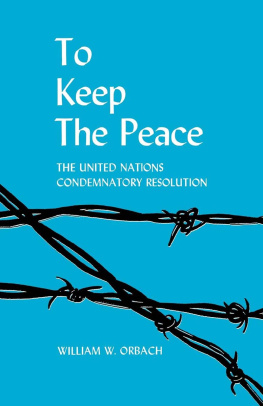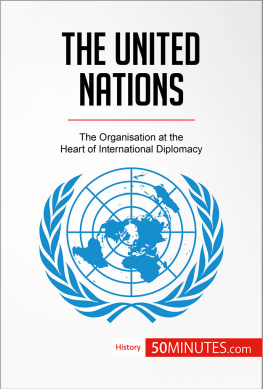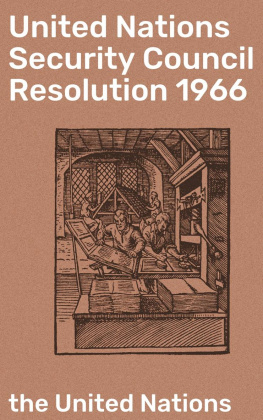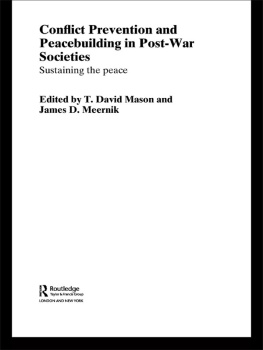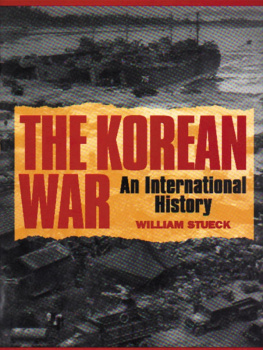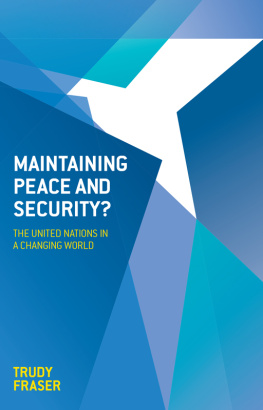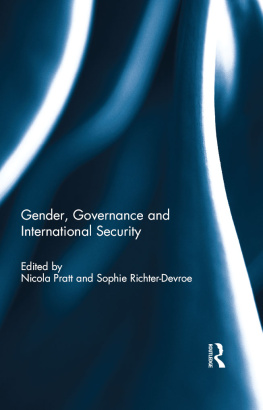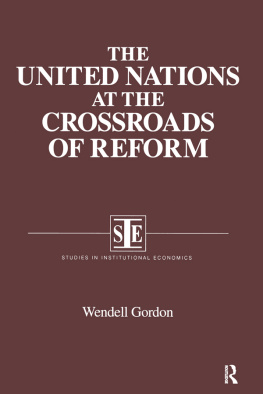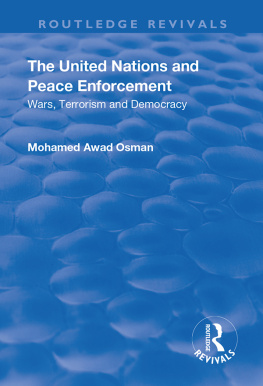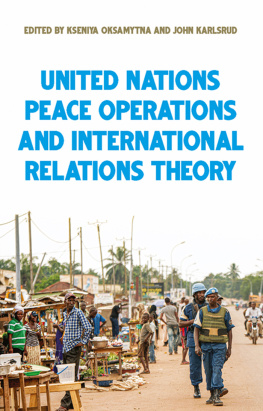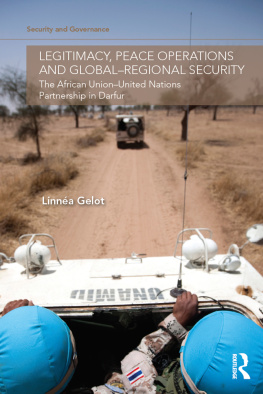ISBN: 978-0-8131-5404-6
Library of Congress Catalog Card Number: 75-41989
Copyright 1977 by The University Press of Kentucky
A statewide cooperative scholarly publishing agency serving Berea College, Centre College of Kentucky, Eastern Kentucky University, Georgetown College, Kentucky Historical Society, Kentucky State University, Morehead State University, Murray State University, Northern Kentucky University, Transylvania University, University of Kentucky, University of Louisville, and Western Kentucky University.
Editorial and Sales Offices: Lexington, Kentucky 40506
T O F IORELLA
WHO SUFFERED THROUGH ALL THIS
Preface
The primary function of the United Nations is to maintain international peace and security, and to that end: to take effective collective measures for the prevention and removal of threats to the peace, and the suppression of acts of aggression ( UN Charter, Chapter I, Article 1). One of the primary means utilized by the United Nations to attain this end has been the condemnatory resolution.
In the pages that follow, I shall attempt to assess the development, reasons for, and effects of such resolutions in order to analyze the role of the United Nations at the present time.
I wish to make certain acknowledgments of deep gratitude for help in preparing this study. First, to Dr. Joseph Dunner, who encouraged and aided me in every possible way from my earliest undergraduate days. To Dr. John G. Stoessinger, whose advice in the preparation of this manuscript was invaluable. To Dr. Abraham Bargman, who spent countless hours with me analyzing and developing some of the ideas in this work. And finally, to my wife, who has selflessly supported me throughout, and without whose help I could never even have begun this manuscript. To her I owe all.
1
Introduction:
The Condemnatory Resolution
A resolution of collective delegitimization is a declaration by a group of states that the action of another state is not properthat is, not in accord with the rules of international society. It is a statement by a recognized international body that the actions of a state are wrong, serving both as a judgment against that state and as a rebuke of it.
The concept of collective delegitimization is an outgrowth of the literature on legitimacy. Seymour M. Lipset gives perhaps the best definition of legitimacy: the capacity of a system to engender and maintain the belief that the existing political institutions are the most appropriate ones for society. However, this definition is really limited to the concept of internal legitimacy. Perhaps a more comprehensive definition of legitimacy, for the purposes of this work, should be based on the more common usage of the wordas correct, proper, or justthat is, in accordance with the rules and traditions of the particular society in question. Legitimacy, internal or external, could thus be defined as the belief of a societys members that an action, policy, or government is in accord with the rules and traditions of that society.
Internal legitimacy is essential for the continued existence of any government. The failure of a government to gain legitimacy in the eyes of its people will undermine it and make it susceptible to revolution. External legitimacy is not as essential to the continued viability of the state; it is conceivable that a government or state survive without it. Thus, one state can declare the policies or actions of another states government somehow illegitimate without threatening that states existence. This is delegitimization. When a group of states declares that a policy or action of a states government is not in accord with the commonly accepted rules and regulations of the international arena, the process is called collective delegitimization.
Delegitimizations must be based on some standard. In order to declare that the policy (or government) of a state is not in accord with certain rules, one must first identify those rules. Standards for internal legitimacy are not difficult to find. They are a nations constitution, written or unwritten, together with its customs, habits, mores, and traditions. A government is illegitimate if it fails to act in accord with the principles of that society. Standards for external legitimacy are more difficult to establish. International law is neither universally accepted nor obeyed, although international treaties have certainly provided some standard; and since the legitimacy of a governments policies or actions in the eyes of other states will depend on their accord with the moral principles and beliefs of the legitimizers, the importance of international customs and mores cannot be ignored. That is, Communist states are more likely to legitimize other Communist states, and democracies, other democracies, and so on.
With the advent of the United Nations this rather vague and arbitrary system of standards was formalized. The UN Charter became the basis for a collective determination of the legitimacy of the policies, actions, or governments of states. Policies or actions in accord with the Charter or with UN resolutions based upon the Charter are considered legitimate; other policies and actions are declared illegitimate. Thus, South Africa has been condemned for its policy of apartheid because it contradicts the Charter principles reaffirming the equality of all men and their right to self-determination. And the Peoples Republic of China was condemned for its action in Korea because it violated the Charter injunction against aggression.
The United Nations is not a legal institution, however, and the Charter has not established a legal standard for collective delegitimization. UN standards are actually a unique mixture of both the political situation and the moral standards operative in the international arena at any given time. In other words, the United Nations is not an impartial organization objectively assessing and considering each international conflict as it arises, but a political body reflecting the interests of its membership. The selection of issues is based on subjective, not objective grounds. So the United Nations is neither an arbiter of international law, nor the moral conscience of mankind, but a convenient international forum in which a state can discern the policies and opinions of its fellow states and make known its own.
It will become apparent here that in many cases, the question of how many approved the resolution is less essential than who approved it, and the debate may be more carefully studied (to ascertain the positions of participants and nonparticipants) than the actual wording of the resolution itself. This is why one can question Inis L. Claudes assertion that statesmen are keenly conscious of the need for approval by as large and impressive a body of other states as may be possible, for multilateral endorsement of their position. Do they seek UN approval for its intrinsic valueor because it represents the policies of individual states? Do they cherish collective legitimization as a unique entityor because within it are contained the individual legitimizations of their friends and allies? These questions assume, of course, that states vote in the United Nations according to their own interests. But how in fact does one determine whether votes in the United Nations actually reflect the national interests and policies of the member states, or whether these states are merely engaged in a grotesque propaganda charade? In other words, is the whole UN procedure a serious exercise in decision-making, or a diplomatic game? Do the states believe that their resolutions will be of any consequence outside the immediate vicinity of Turtle Bay?

